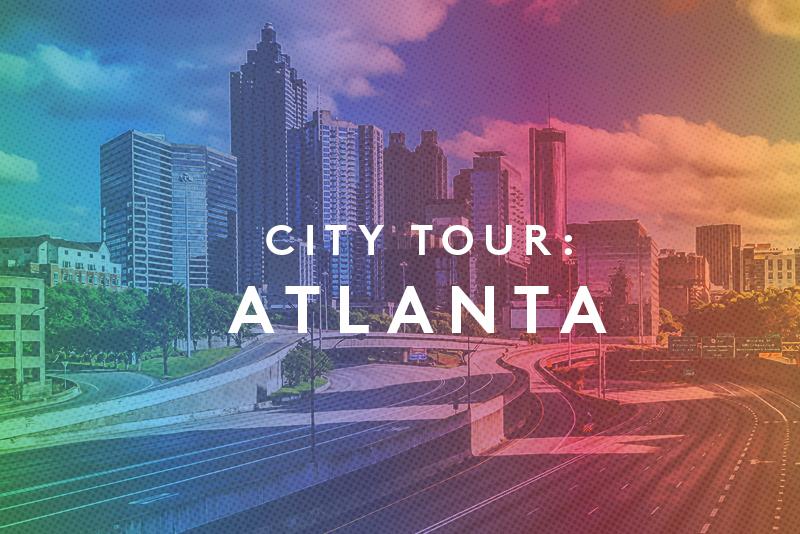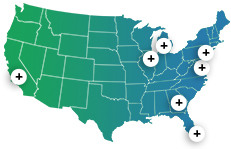
The LIFT Labs City Tour is a multi-city event featuring discussions with more than 200 founders, funders, and startup leaders.
Check out the City Tour experience for highlights and top insights from all seven cities.
While COVID-19 restricted travel and in-person meetings, Atlanta’s startup ecosystem held strong. Already home to a vibrant tech ecosystem, collaborative community, and opportunities for corporate partnerships, Atlanta soon became a go-to place for venture capitalists looking for promising tech startups. Its sunny climate didn’t hurt either.
“A lot of disadvantages have become advantages in the past two years. These days, distance is no longer a barrier. That’s accelerated a lot of VCs looking for diamonds in the rough — great companies coming from regions where competitors are not looking. Now, it’s an advantage to be in cities like Atlanta,” said Jon Gosier, founder, and CEO of FilmHedge, which finances movie and TV productions.
Gosier shared his comments during the LIFT Labs City Tour virtual visit with the Atlanta startup ecosystem members. Founders, funders, and community leaders in the discussion said Atlanta has accessible capital for a non-traditional startup city and a robust and collaborative community.
» Here are some takeaways from our conversation:
Atlanta’s Startup Ecosystem
People — and money — are flocking to Atlanta. As the pandemic led people to move away from cities with a higher cost of living, Atlanta has seen an influx of new people — and money.
“There is a lot of new money coming to Atlanta, meaning new angel investment activity,” said Gosier. “There are people with a lot of dry powder looking to support great founders.”
Journalist Kunbi Tinuoye said talented founders are coming to Atlanta too.
“Hot founders that could be in Silicon Valley, Boston, or New York are choosing Atlanta. It’s cheaper, the climate is great, and it’s a very collaborative ecosystem,” said Tinuoye, founder and CEO of UrbanGeekz, a tech blog focused on covering content from a diverse and multicultural perspective.
Early-stage funding is always a big issue for founders, particularly in non-traditional tech hubs. Yet Atlanta has ample funding opportunities for a smaller ecosystem. It’s home to Comcast NBCUniversal’s The Farm, an innovation hub supporting startups and founders from around the world and Atlanta’s thriving entrepreneurial ecosystem.
Allyson Eman, CEO of Venture Atlanta, has seen money flow into the city. She estimates that there were six funds in the city when Venture Atlanta launched 14 years ago. Now that number has climbed to 30 or 40.
“There continues to be a misconception that there is no capital here. There is capital here. There is also access to capital here,” said Eman. “If you’re working with young founders, send them to Venture Atlanta. We’re handing them a free opportunity to get access to capital.”
Biotech and life sciences industries are growing. Nakia Melecio, a research faculty member at Georgia Tech, said that biotech and life sciences are particularly hot in the region. The Biotechnology Innovation Organization reports that the Georgia bioscience sector outpaced national growth rates and that bioscience-related venture capital investments grew from $146 million in 2018 to $254.4 million in 2019 — a rise of 74%.
“Atlanta is actually in the top 10 for emerging clusters for biotechnology and life sciences, which is a first in a long time,” said Melecio. “There is a lot of research and startup activity around that.”
What Atlanta Needs
Less fragmentation between startup programs. Brandy Nagel wants to see more cohesion in how Atlanta’s accelerators, bootcamps, and other entrepreneurship programs work together. In her view, startups should smoothly transition from one program to another based on which ones match best with the company’s development.
“Startups need a lot of different kinds of help as they grow. We’ve got so much of that good stuff in Atlanta but we’re not good at helping startups find what’s next on their path,” said Nagel, Research Faculty and Entrepreneur Educator at Georgia Institute of Technology.
Amelia Schaffner, the Director of Entrepreneurship at Emory University’s Goizueta Business School, agreed that an overarching startup navigator that educates founders on best-fit programs would be really helpful.
“We need a navigator experience so before you jump in and start accelerator hopping or investor hopping, you are able to know exactly where to go at your exact stage for your particular needs, your industry, and your funding stage. That is something startups can use at all stages so they make the most out of their experience rather than trying something and then identifying that it might not be the ideal formula.”
A networking roadmap for newcomers. People moving to Atlanta may not understand how to navigate the city’s startup and business communities. Joey Womack, founder, and CEO of Amplify 4 Good and Goodie Nation said Atlanta needs to welcome newcomers, develop more coordination between programs, and empower them to put their own stamp on the startup ecosystem.
“There is a huge opportunity to help people get welcomed to the city and understand the landscape — but more importantly, to help define a vision for the Atlanta startup ecosystem for the next three, five, or ten years,” said Womack. “Communication, management, vision, and leadership are key.”
Did we miss anything? We know it’s impossible to learn everything about a particular startup community from just one event. If you’d like to add any attributes or challenges — or tell us about startups doing incredible things, drop us a line. We’d love to hear from you.

